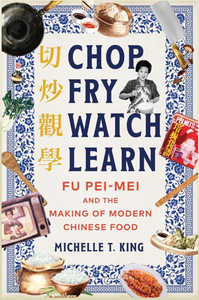The high human cost of unsafe food
I think we need a whole lot more public outrage about unsafe food. Maybe the recent front-page articles in the Washington Post and New York Times will do the trick.
Both tell tragic stories of women who developed hemolytic uremia syndrome in response to eating a food contaminated with E. coli O157:H7. Both reveal the appalling physical and monetary cost of these illnesses. Recall: we also do not have an effective and affordable health care system.
To me, the most chilling part of the Times investigation had to do with the lack of testing for dangerous pathogens. No meat packing company wants to test. Why not? They know the animals coming into the plant are contaminated. They know that tests would come up positive. They know that if they find pathogens, they have to recall the meat.
It’s obvious why meat is contaminated. The making of hamburger is enough to put anyone off, as the letters to today’s Times attest. In my book, Safe Food, I discuss a study demonstrating that one pound of commercial hamburger could contain meat from more than 400 cattle. The Times’ article takes such facts to a personal level. The 22-year-old woman who ate the tainted hamburger is paralyzed from the waist down and likely never to walk again.
Read these articles and you will understand that meat companies will not do what is needed to produce safe food unless they are forced to.
And it’s not just hamburger that causes problems. Center for Science in the Public Interest (CSPI) has a new report out on the ten foods that cause the most cases of foodborne illness in America. Hamburger isn’t even on the list. Instead, it’s leafy greens, eggs, tuna, oysters, potatoes, cheese, ice cream, tomatoes, sprouts, and berries. [Addendum October 9: for a critical analysis, see the Perishable Pundit’s comments on the study].
So how come Congress isn’t forcing all food producers to produce safe food? Could it be because there isn’t enough public outrage to counteract industry pressures and make Congress act?
 Bill Marler, who represents both of the victims profiled in those articles, is begging Congress to put him out of business.
Bill Marler, who represents both of the victims profiled in those articles, is begging Congress to put him out of business.
His message is clear: get busy and pass meaningful food safety legislation, right now, before it is too late.
I’m hoping these articles and the CSPI report will be seen by senatorial staff who will urge their bosses to support the House bill passed last spring.
Maybe we need hundreds of thousands of people to deluge Congress with appeals to act on food safety, now.
You would like to do this but don’t know how? Easy. Find your own representatives online on the House site and your Senator just as easily. The e-mail addresses are right there waiting to be used.
Addendum: Here’s one rep who is on the job: Rosa de Lauro (Dem-CT). Take a look at her statement about the Times article. Where, she wonders, was the USDA while all this was going on? Doing lots of good things, according to USDA Secretary Tom Vilsack:
No priority is greater to me than food safety and I am firmly committed to taking the steps necessary to reduce the incidence of foodborne illness and protect the American people from preventable illnesses. We will continue to make improvements to reduce the presence of E. coli 0157:H7.
Suggestion: enforce HACCP!


